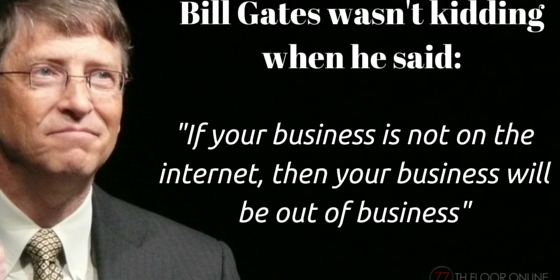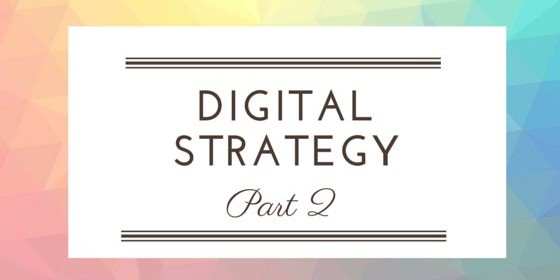On the off chance that Google ever suspects that your site has been hacked, they will warn visitors about it in the search results. And obviously if Google marks your site as hacked — it is terrible for business. How can I tell if my website has been hacked? Your website shows some spammy advertising content that you didn’t put up Your website redirects to an ‘inappropriate’ site such as a porn site, pharmaceuticals site. Your website shows up in search engine results as “this site may be hacked” Unusual traffic in your web logs such as unexplained big spikes in traffic, especially from other countries and big upsurge in spam The above listed are only a few of the ways you can tell without being a techie who has in-depth knowledge of corrupted files. So you suspect your website was hacked. But how did this happen? Finding out how you were hacked will help address security flaws you may have encountered. Read this post on what might have caused this. My website has already been labelled as hacked. What do I do now? First thing, Stay Calm! Clean up your machine Run an anti virus, malware scan to make sure there are no security vulnerabilities on your computer Connect via FTP and change all backend passwords Talk to your hosting company and see if they can help you with checking for corrupted files and help you clean up Login to your WordPress dashboard and make sure all your plugins and files are updated Verify the site with Google again with webmaster tools that all is well again. Hopefully, you do regular backups of your website and can retrieve any lost data from that. It’s important to remember that there are crazies out there just waiting for you to slip up. Getting your website hacked is no fun. At 77th Floor Online we offer website maintenance packages where we keep your website up-to-date and safe. We scan everything on a regular basis so that you never have to be in this situation. Has your website already been hacked? Get in touch and we can help you fix it and get back to your...
Read MoreIf you’ve just started your business or are fairly new to the entrepreneurial world, then building your online presence can be time consuming and, at times, frustrating. But it’s also very important. Continue reading to get started on building your business up online. And remember, taking that first step is always the hardest but soon you will be able to run really easily with it. Step #1 Domain Name Registration This is the address people will use to access your Web site. For example, “77thflooronline.com” is the domain name of this site you’re reading right now. What name you want to use is totally a matter of choice. Irrespective of what you pick, it’s always a good idea for you to register your own business name. This is just to make sure you own that particular piece of real estate on the web, and are in control of it. You’d also need to make sure the domain you want is available and register it. Yearly domain costs could be anywhere from $1.00 – $100. Lately, I’ve mainly been using GoDaddy.com to register my domains. Step #2 Hosting Your Web Site on a Web Server You will need to sign up for an account with a web host so that your website has a home and everyone will be able to connect to and view your web pages. If getting a domain name is akin to getting a business name in the brick-and-mortar world, getting a web hosting account is comparable to renting office or shop premises for your business.In order for a website to run, it must be hosted somewhere. There are many different hosting options out there like HostGator, SiteGround, Blue Host etc. Price will vary, depending on the amount of disk space you will have and the connection to the Internet. Step #3 Design of the Web Site Once you have settled your domain name and web host, the next step is to design the web site itself.This is where you decide how the site will look to the user and how it will feel when he or she is interacting with it. “Look” can be defined by colors, fonts, layout, overall styling etc. A few of the ways the “feel” is determined by are how the menu is laid out, the call to actions, page loading speeds etc. While you can always try building your own website using templates provided by, for example Wix, if you are serious about establishing your online brand, we suggest working with a web design professional. When working with a web design company, take some time to clearly define your business objectives and key adjectives regarding the...
Read MoreSearch Engine Optimization {better known as SEO} can be a tough topic to get your head around. But it is absolutely critical for any website out there. Unfortunately, many people and business owners do not know what SEO is, or why it’s so important. If your SEO is lacking, or non-existent, your website isn’t going to be seen. Check out the infographic below, which contains some tips for SEO that you can do yourself. Give yourself a head...
Read MoreSo you have a small business but you’re are not sure if you really need a website. Let me ask you a simple question: What’s the purpose of your website? This seems like a no-brainer question to ask, but most small business owners don’t have a solid answer. They typically say “we want better rankings in Google” or “more traffic” etc. To succeed, any small business needs to know it’s objectives before it can start talking about features and design. We want to know what business goals you hope to achieve with these improvements. Business websites will generally have the following primary goals: Generating leads Sell products or services Generating referrals Building credibility What’s your goal? Make sure that whatever goals you set they are SMART goals! We use HubSpot’s SMART acronym when setting business goals for websites. Here at 77th Floor Online, we often see small businesses shying away from expanding their online presence. Usual reasons can include not having the budget available to invest in a website, a fear that the product would not sell online or that websites just do not work! WEBSITES WORK In this day and age, if you invest with the correct local web design company and they can help you. At 77th Floor we put the needs of your customers & prospects first when addressing small business website planning. We make it easy for your visitors to take action in order to achieve your business goals. Request a free Quote See our...
Read MoreIn December of 2008 SEOmoz debuted their SEO methodology and search engine optimization basics, with an SEO Pyramid in one of their popular Whiteboard Friday Videos. Since then, there have been many advancements within the search engine’s algorithm. What the heck is SEO? Learn the basics of the best free marketing on the internet. In a previous blog post, “7 Reasons why your website is not crawled by Google” I discussed the basics of how Google crawls the web, indexes data, and presents search results. It uses a scoring system called PageRank to the importance of website pages. There are legitimate ways to improve your website’s PageRank score and this is where search engine optimization (SEO) comes in. SEO – or Search Engine Optimization – is the number one way that you can get a return on your investment, because your investment is $0! SEO comes by many names: natural search, organic search, earned search traffic, but no matter what you call it SEO is a critical component to any online marketing program. What are search engine algorithms? Certain algorithms, implemented by Google, Bing, and other search engines, organically find the keywords in your text, as well as relevant linking behaviors, and use them to force-rank all the sites on the web in their respective categories. Though the intricacies of these algorithms are extremely complex, the concept is relatively basic and there are certain tips and tricks that will allow you to win the SEO game. You can optimize your site for any of the many different algorithms, but the industry standard is to optimize for the Google algorithms, as they are typically leading the rest of the industry. Content is still King. Even in the year of the World Wide Web, content is still king. Google scans your content for relevant verbiage to understand which categories you should be force-ranked the highest in, and how you should rank in relationship to your competitors. The algorithms also search the code for the HTML title, not the customer-facing title, to find a relevant and understandable summary of the page. Including relevant back links and having your site featured in back links on other websites is also another critical part of the algorithms ranking system. Make sure you that your site is consistently posting fresh, relevant content so the search engines will continue to rank you in the top few links amongst your peers. Adding your site to the Google Search index It’s fairly simple to submit your site to Google to make sure they add your site into their search index. Access http://www.google.com/submityourcontent. If you are having issues with SEO or...
Read MoreMany small businesses and even big ones for that matter, spend a lot of time debating the return on investment (ROI) of hiring an outside firm for their digital marketing. “Sounds great, but is this going to help me sell more?” The answer, in short, is NO. Not unless you’re playing the game correctly. We already got you covered with a strong digital foundation. Missed that vital piece? No worries, check out our Part 1 Basics here And the Game Plan Continues….. Create a marketing funnel – The marketing funnel is a system that helps track the stages consumers or purchasers travel through to eventually make a buying decision. Give this serious thought as this aspect of your online marketing gives you the greatest chance to turn your online dreams into reality. When someone visits your site, do they want to Stay or Go? Mobile Responsiveness and Page Speed are two of the most important factors which determine whether your visitor sticks around or disappears Social Media – The future of digital lies in companies being social and mobile. Use engaging social media posts to attract more traffic to your site. Using pictures, video, and other relevant media will help your posts get more engagement. This level of engagement will earn you the trust of customers or consumers. Businesses that create a more authentic and humanized marketing experience will be the clear winners in 2015. Content is still King – When it comes to digital marketing in this day and age, content means everything. As Google continues to get better at connecting related search queries, long, in-depth content will become more important than ever. Looking at what the content is, where it sits and what it says is absolutely crucial to driving the success of your business. Refreshing the content on your website on an almost daily basis is no mean feat, but in today’s online purchasing world it is key to success. It is connected to every single part of the marketing funnel and is vital for digital marketing. Now that you have some kind of game plan ready for the success of your small business online strategy, take some extra time to re-evaluate what you’re goals are. This is one time did it thing but has to be a recurring mindset. SEO, Social Media are all continously changing and so should you. Your digital strategy needs to keep up with all these factors. Digital marketing can get very exciting, especially when new technologies and methods seem to pop up every day. But here’s a fine line between being smart about getting your basics figured out first and blindly jumping on the next flavor-of-the-week tactic. By...
Read More





